All photos in gallery by Alice Andersen, Wonderland Photography
Article originally published March 12, 2013 by The Grid online (thegridto.com).
Denise Benson revisits both the original Isabella Street location that laid down the breeding ground for Toronto’s early-‘80s alternative music and fashion scenes –also seeming to be U2’s home away from home– and the Yonge Street haunt that later served as a hangout for goths, punks and ska fans alike.
BY: DENISE BENSON
Club: Domino Klub (1 Isabella St.), later Klub Domino (279 Yonge St.)
Years in operation: 1979-1987
History: In the late 1970s through much of the ’80s, Yonge and Isabella was an epicentre for emergent music, arts, and fashion culture. The area came alive at night, with numerous booze-cans and after-hours clubs drawing dancers to upper-level locations on Yonge and decadent discos on side streets, especially St. Joseph. Before Domino’s opened upstairs at 1 Isabella, the venue had been the Cheetah Club. Owned by Gunther Weswaldi, whose background was in the food and beverage industry, the Cheetah was short lived. It’s thought that Weswaldi and his wife Darlene opened Domino at this address in early 1979. (Weswaldi’s current whereabouts are unknown.) Advertised as a venue where people could meet for “lunch, dinner, dancing, disco,” Domino’s was a licensed restaurant and nightclub open daily. It did not launch with a distinct identity.
Rock station Q107, which had gone on-air in mid-1977, promoted a number of events at Domino’s before street-savvy event producer Michael Gallow and pioneering post-punk DJ Dave Allen approached Weswaldi with the concept of entertaining downtown denizens interested in a new wave of sounds and styles.
“Dave and I had participated in the earliest days of the punk-rock explosion in town,” writes Gallow by email. “By early 1979, that energy had degenerated into teenage-male aggro. The arty/fashion element of punk was mutating into new wave, and fit well with our Yonge and Bloor crowd. Elements of the Church/Wellesley ghetto were still partying hard, and there was a blending of that uptown scene with ours.”
Gallow and Allen soon brought a fashionable mix of people to 1 Isabella.
“The first event was a post-concert party for [British band] Japan, in late November 1979, with promo and ticket giveaways on Q107,” says Gallow. “I remember David Sylvian looking like a deer caught in the proverbial fan’s headlights.”
Gallow also recalls that Weswaldi was interested in having his venue play host to new sounds and scenes, with an emphasis on dancing rather than the live acts Q107 personnel had proposed. This also made Domino’s different than live music venues like The Edge, The Colonial, El Mocambo, and Horseshoe Tavern, which all booked punk and new-wave bands, to varying degrees.
“Dave and I felt there were enough live venues around, but nowhere for the evolving new music/fashion/art scene to hang out,” says Gallow.
They were given the go-ahead.
“Gunther called the spot Domino’s. We suggested the Domino Klub—a tip of the hat to the Mudd Club in N.Y.C. That worked for him.”
Why it was important: Domino was Toronto’s original post-punk and new-wave dance club. Sets of new wave could be heard at nearby gay clubs like Stages and Club David’s; The Edge was ground zero for pioneering live music; and Nuts & Bolts, Twilight Zone, and Voodoo would all soon open doors to dancers seeking brand new sounds. But Domino was the first.
“Most of our music was post-punk and the beginnings of electro-pop,” says Gallow, who purchased much of Domino Klub’s music. “I knew we would be a hit when I looked out at a sardine-packed dance floor as Gary Numan’s ‘Cars‘ and The Normal’s ‘Warm Leatherette‘ boomed over the sound system. We were definitely the only spot in town for that experience.”
The original Domino had a number of things going for it, in addition to a prime location. Not only did its dining room attract a crowd looking for cheap, decent food, it also provided a quieter space for people to talk, and friendships to develop. Further down the hallway was the large main room, ideal for dancers and voyeurs alike. The sizable dancefloor—much of it stainless steel—was slightly sunken, overlooked by a long bar and a variety of seated and standing areas. Dancers tended to face a wall of smoked mirrors.
“All the better for making sure your moves were cool,” says Gallow.
Domino may have smelled of smoke and beer—Black Label was the drink of choice—and had only adequate sound and lighting, but the layout allowed enough options for punks, skinheads, fashionistas, and artists of all stripes and sexualities to gather comfortably. Dave Allen’s range of edgy sounds also connected crowds.
“Dave had a tremendous enthusiasm for the music, and he was able to communicate that,” offers Gallow. “He was willing to explore the less obvious music, and had an intuitive grasp of what each segment of the audience wanted to hear. [He’d play] up-and-coming tunes early, peaked with hits for the large mixed crowd, and got more dark and experimental as the early hours of the morning arrived.” (Allen himself could not be reached for comment. Even close friends are uncertain of his whereabouts.)
“The original Domino’s was ground zero for the re-birth of club culture,” says Canadian DJ/producer Chris Sheppard. His interest in new music, dancing, and meeting girls had made him an early regular at Domino Klub, and he soon got his DJing start there.
“Chris was the first person to control the DJ booth beyond Dave or myself,” confirms Gallow. “And that was only as a replacement on nights when we couldn’t.”
Sheppard, who later became Domino Klub’s main resident, was finely tuned in to the sounds of the time. Even now, he underscores the difference between the music of Domino and that heard at Nuts & Bolts, which launched as an alternative dance club in 1980.
“1 Isabella was much cooler,” proclaims Sheppard. “Punk had progressed, and Domino was an important part of the post-punk movement. Nuts & Bolts was The Cars and Elvis Costello; Domino was Fad Gadget, 4″ Be 2″, Gang of Four, Japan, and more Japan. Domino was The Associates, The Jam, Nina Hagen, Cabaret Voltaire, The Cure, Blancmange, and Joy Division; Nuts & Bolts was ‘Hey Mickey.’”
Regardless of the nuances that might seem subtle to some ears, all of this music was so new that nightclubs played an essential role in it being heard. Bands toured with support from club DJs, record shops, magazines, and select media outlets. In late 1970s Toronto, only upstart radio station CFNY played such music with consistency.
“Ivar Hamilton would come and listen to the tunes we were spinning, and they would show up on the CFNY playlist,” recalls Gallow. “I also have strong memories of Jeanne Beker and J.D. Roberts coming by regularly to do interviews at the club. The NewMusic on City-TV had just started, and we were a convenient spot for filming.”
Record labels and concert promoters also took note.
“Almost every band The Garys brought into town came by the Domino Klub to hang out,” states Sheppard. “I remember deep conversations with Simple Minds about where they were going musically.”
Sheppard, like many, still recalls the excitement of David Sylvian and Japan’s early visits.
“When Japan came and hung out at the club for a week or so, it was like meeting with the messiah at the time. Japan was so important to us all, as a group and for their fashion sense.”
The members of U2 also became frequent visitors.
“I have a strong memory of seeing U2 at the El Mocambo,” Gallow enthuses. “It was their first Toronto gig. Dave and I grabbed them in the dressing room, and took them to Domino’s by cab.”
“Dave Allen gets credit for being the first [Toronto] DJ to push U2,” adds Sheppard. “Off the back of their first 7-inch single, we knew U2 was going to be huge one day. So we all went down to their first gig at the El Mocambo. The place was not even half full. I remember Dave telling Bono and The Edge that they could be so much better. They were a fixture at 1 Isabella, every time they came back to town, which seemed like every other week.”
Although Domino Klub did not focus on live shows, members of many local bands were among the early core crowd, and did perform.
“Platinum Blonde was like the house band,” says Sheppard. “When they were not playing, they were hanging out. It’s where they started.”
“Mark Holmes, founder of Platinum Blonde, was around all the time in the early days,” agrees Gallow. “The English accent came and went, but he was very determined to be a flashy rock star. Good on him, as he achieved his goal.” (Holmes is now also co-owner of College Street venue Mod Club.)
Other homegrown talents, like The Deserters and Nash the Slash, performed. Montreal’s Men Without Hats made their Toronto debut at Domino. N.Y.C. no-wave band Bush Tetras also played there, as did Cali punks Black Flag.
“There was also a time when Marianne Faithful came up to the booth and requested her own music,” recalls Avery Tanner, a DJ who got his start playing at York University while also a Fine Arts student.
He and friends including DJ Don Cochran (later a Twilight Zone resident) and Arthur Wanner also produced downtown parties where Wanner’s extensive Beta-tape collection of music videos would be shown. In the summer of 1981, Tanner and Wanner were invited to do Wednesday video parties at Domino.
Record labels including PolyGram hopped on board, with Domino’s also hosting themed video nights featuring breaking bands like Killing Joke. The labels, along with hipper media outlets, turned to Domino not just because the club’s DJs played the newest of the new, but also because it attracted a loyal crowd of trendsetters.
“It seemed that people just lived there,” says Tanner. “They were there all week long. It really was a cultural resource centre for freaks of all ilks.”
“It was everyone your parents were afraid of and warned you about,” says early-’80s Domino Klub regular Carson Foster. “We all would read The Face each month, and adopt the fashions immediately afterwards.”
Domino was the very first club Foster went to. He was brought there by “a 15-year-old Rosedale runaway I’d let stay with me,” and kept going back for “the fashion, the music, the danger, the posing.
“Bits of new wave were starting to eradicate the Boston and Kansas frontal lobes I’d grown up with, but Domino was like an immersion tank,” says Foster, who later worked as The Rivoli’s talent booker and founded the Kickass Karaoke series. “The music was unlike anything I’d ever experienced before. The common thread was that it was new, and not on any radio station I’d heard. [It was] funk, punk, rap, and rock all mixed together.”
Now a professional grip working in Canadian film, Foster then also had ties to Domino as an employee of fashion-forward Canadian designers Parachute.
“We were fortunate to hook up with the gang from the newly opened Parachute clothing store in Yorkville,” recalls Gallow. “They were from Montreal and were, without a doubt, the most experimental fashion crowd Toronto had ever seen. One sales associate, named Mitchell, would stop traffic at Yonge and Bloor when he strolled down the street. The Parachute crew really cemented our fashion status, as they needed a place to be seen streetwise, and our space and music combo was perfect for them. Things build on one another, and quickly we gained a reputation as a sympathetic spot for new British music and edgy fashion.”
Gallow, Allen, and friends had created a space where expression and originality were paramount. People of varying genders, sexualities and subcultures came together. Many in Domino’s core crowd would become active members of Toronto’s cultural vanguard.
“It was such an amazing group of talented, beautiful people,” enthuses Sheppard. “The scene then was so small that we all developed friendships that last till this day.”
Sheppard mentions many by name, like lighting designer Stephen Pollard, who would go on to work with bands including Psychedelic Furs, U2, and Simple Minds; jewelry designers Ruth Weller and Richard Vermuelen; Tim Blanks, renowned fashion journalist and one-time host of Fashion File; and photographers including Alice Andersen.
“There were a lot of creative people that hung out at Domino,” agrees Andersen, a very familiar face during the club’s first two years.
“What still stands out the most [to me] is that the regulars at Domino bonded, and were like a family. Many maintained relationships outside of the club, and some lived together. I made a lot of good friends at Domino.”
Andersen mentions dozens by name, including visual artist Mike Hansen; lighting tech, Ironhead impresario, and “dancing king” Danny Regan; interior designer Caroline Robbie; special-effects artist Gerald Lukaniuk a.k.a. Score; and the late, great hair stylist John Steinberg, founder of seminal salon Rainbow Room. Many Domino regulars were hair stylists, especially with House of Lords directly across the street.
Some of Andersen’s many photos of Domino’s early devotees are featured in the photo gallery at the top of this page.
“Gunther and Darlene were very open to allowing not only bands to perform, but also to other art forms,” credits Andersen. “Fleur Govaerts and myself created a slide-show story set to music, with Domino kids dressing up as specific characters and participating in the ‘film shoot.’ It was called The Tenement, and we premiered it at Domino.”
Despite all of the cultural collaboration, there were a number of key personnel shifts. Michael Gallow left by the end of 1980, having “realized that Gunther was making all the money through our hard work, contacts, and initiative. He refused to pay anything more than a token fee for the DJ services.”
Gallow opened influential afterhours club Voodoo at 9 St. Joseph in August of 1981. (He now owns marketing company Benchmarx Data Services.) Dave Allen became Voodoo’s main DJ, and many in the Domino crowd shifted allegiances or bounced between venues. Chris Sheppard took over as resident at Domino for a period, followed by Avery Tanner, the club’s inventive full-time DJ who worked most of its last two years.
In early 1984, Domino Klub re-opened as Klub Domino at 279 Yonge St.
“As I recall, the reason for the move was that Gunther’s lease had come up for renewal, and the landlord wanted too much money,” explains Tanner, who moved with the club and was closely involved in the new venue’s renovations. He installed sound and lights, built the DJ booth, and was the core resident during Domino’s first two years on Yonge.
Despite the move to a more commercial part of town—across from the Eaton Centre, no less—the club’s identity as an alternative-music hotspot remained. The new venue had only one room, but it too was up a long narrow flight of stairs. This time, a Centipede video game was found at the entry. Once in the club, patrons could choose between seating areas or a big wooden dancefloor in front of the DJ booth. As a lesson learned from the original location, mirrors were installed on both ends of the dancefloor for those who enjoyed their own reflection. Red and black were the main colours. Black Label beer still reigned supreme—it’s where I had my first one. Canadian cop drama Night Heat even filmed scenes at the new location.
Not surprisingly, most of the original Domino regulars I speak with stress that the second location was not “the real” Domino Klub.
“The second Domino’s was home to the next generation of goths, punks, and electro fans who were too young when [the first location] happened,” says Sheppard. “The only thing it had in common with the original was the name. Isabella was when everything was still so brand new.”
Sheppard did DJ at 279 Yonge in its early days, but left Domino behind later that year to develop Sundays at The Copa. His career exploded when Sheppard became the star DJ at RPM, a host on CFNY, and the main producer behind breakout dance act Love Inc. (He claims to have since earned three Ph.D.s in neuroscience, and says he continues to produce electronic music under a variety of undisclosed project names.)
“The sense that the Isabella location was the ‘real’ Domino is more to do with the cultural mecca that made that place so special,” offers Tanner. “The scene at Dundas was still a wonderful, vibrant, and creative one, but lacked the diversity and grit of Isabella.
“But I don’t feel that there was any compromise or dilution musically,” he emphasizes. “It’s impossible to explain how eclectic the times were. At one moment, I would be playing the ethereal ‘Ghosts‘ by Japan, and the next there would be the thunder of Doc Marten boots pounding the stainless steel floor to ‘Papa’s Got A Brand New Pigbag.’ The Clash, Heaven 17, Cabaret Voltaire, Siouxsie and the Banshees, Echo and the Bunnymen, and The Stranglers were some of my personal favorites.”
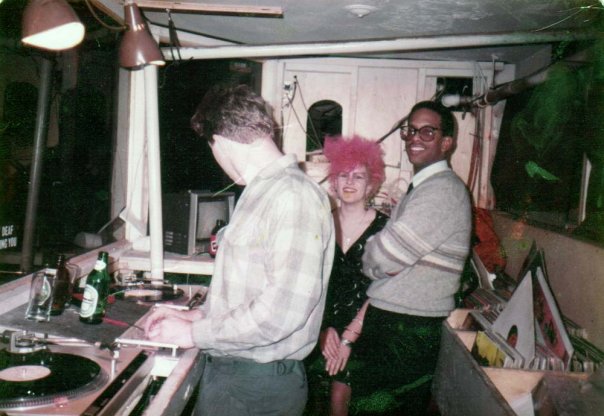
DJ Larry Saint and friends in the Klub Domino DJ booth, built by Avery Tanner. Photo courtesy of Saint.
After bringing in friend Larry St. Aubin, a.k.a. DJ Larry Saint, to take over weekends and, eventually, all six nights at the club, Tanner left Klub Domino to spin at the Catwalk, Big Bop and, most famously, New York’s Webster Hall, where he was a star resident from 1992-2012. (He returned to Ontario last summer, and is now a visual artist based in Hamilton.)
Tanner speaks fondly of Domino to this day.
“Gunther Weswaldi was an older, surly man of few words, but I never once had a problem with him. He gave me complete freedom with the music. It may have seemed that Klub Domino was just a business to him and that he was not interested in the cultural movement that it pivoted upon, yet I feel that he was very proud that his baby was such a phenomenon.”
Who else played/worked there: Montreal native Ivan Palmer is synonymous with the last two years of Klub Domino. He was a fixture while Tanner and Larry Saint DJed, and had gained a reputation by spinning at Toronto venues including Zambukie on College, The Catwalk on Richmond, and The Diamond Club on Wednesdays.
Palmer had also DJed at Oz, the nightclub that had moved in to 1 Isabella post-Domino. (The address would later house gay club Komrads.) In 1985, Darlene Weswaldi hired Palmer to play at Klub Domino where he would spin a mix of rock, punk, ska, electrobeat, industrial, new wave, and more multiple nights a week.
“In my view, Klub Domino was the perfect breeding ground for creative people,” says Palmer, perhaps best known and loved for his lean towards goth music and culture, which he championed at Domino.
“Wednesdays were for the Batcavers—a mix of what we now call goth music, and the industrial that was the booming sound of that time,” offers Palmer, listing bands like Alien Sex Fiend, Specimen, Virgin Prunes, Cassandra Complex, Front 242, Sex Gang Children, and Death in June.
He bounced between venues, also including Nuts & Bolts, The Silver Crown, and Club Magic, but Palmer’s Batstrack Wednesdays at Domino were especially popular.
“We would shred garbage bags and hang them on the ceiling, and rip some cheese cloth to dress the whole club up like a cave,” details Palmer. “Many people would come in early to help for free admission. “One week night, all the members of Skinny Puppy came in and stayed the whole night. I played ‘Chew You to Bits‘ by Portion Control, a band that influenced them a lot. Nivek Ogre came up to the booth, gave me the big thumbs up and said, ‘Ivan, Portion Control. Right on!’ I was a really big Skinny Puppy fan, and played a lot of awesome obscure music that night.” 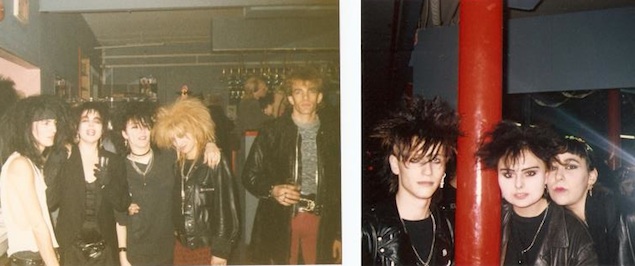
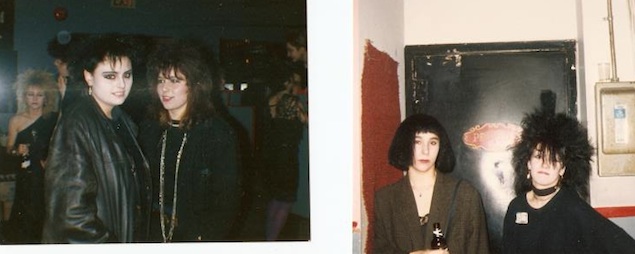
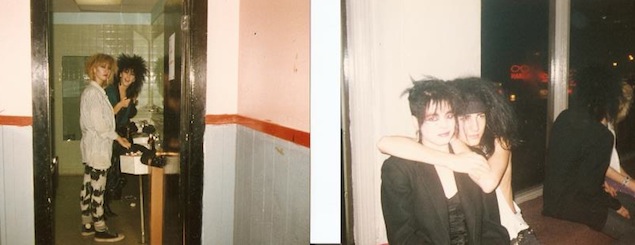
Along with Palmer, Stephen Scott, Siobhan O’Flynn, and Philip Brown were some of the last main DJs to work the Domino booth. I danced to all of them, multiple nights a week, during Domino’s closing year—my first living in Toronto.
“I pushed the ska, reggae, and punk revival at the time, as electronica dominated the dancefloors,” says Brown, who played Thursdays and Saturdays. He cites a playlist packed with two-tone ska (The Specials, The Beat), indie and local ska and reggae (The Untouchables, Satellites), original punk (Ramones, Sex Pistols), California hybrids (Fishbone, Dead Kennedys), and more obscure sounds (The Teardrop Explodes, Captain Beefheart).
“Unlike Isabella, the Yonge Street space became more of a punk hangout,” states Brown. “It had more of an edgy, divey vibe to it than Bolts or the Dance Cave, and was not nearly as fashion- and make up–forward as spaces like Voodoo or the Iguana Lounge. Ripped jeans, t-shirts, Doc Martens, kilts and suspenders, black leather, studs, PVC, and silver skull rings were the standard fashion statements.”
Most Klub Domino staff, like roller-skating waitress Silvy Calloway, and bartender Bastian Cassidy (“she was the heart and soul of the place,” says Brown) shared the aesthetic. Managers—also including Bill Delingat, who worked with Gunther Weswaldi at the original Domino’s; former Nuts & Bolts manager Art Gilewski, and finally Gary Pinter—didn’t necessarily, but they did keep the club humming as best as they could.
“279 Yonge was very low-tech, with a hanging-together-by-tape sound system,” recalls Brown. “It was clear from the lighting system, sound, and bathrooms that absolutely no more money was being spent in the place.”
What happened to it: “We were a ship that the owners had abandoned, being steered and repaired by the crew, and we had an amazing time doing it,” Brown adds.
“But, as other clubs appeared, with owners and management that saw running a club as a professional enterprise, and as staff jumped ship to better paying or more productive ventures, the last of us knew it was only a matter of time. Rather than just let a piece of Toronto music history shrivel and die, we decided to throw the end-of-an-era, giant blow-out to say thank you, and goodbye.”
Brown, who went on to play at clubs including the Dance Cave and Lizard Lounge, DJed the closing parties in March 1987. (He now works as a real-estate agent in Toronto.) Palmer and Siobhan O’Flynn joined him in closing out the club.
In the mid-’80s, Gunther Weswaldi opened the massive Spectrum Nightclub on the Danforth. Weswaldi also maintained his lease at 279 Yonge, working with people including Bill Delingat (now co-founder of Cashbox magazine; interview requests to him went unanswered) to open both La Cage Aux Folles and Top of the Square Dinner Theatre.
The address is now home to the Hard Rock Café’s Upper Level. Heavily renovated, and almost unrecognizable, the room is available for private and public bookings.
The spirit of Domino is celebrated through occasional reunion parties, organized by early devotees including Isabelle Moniz and Marika Suha (known during the Domino Klub days as Scary Mary). Palmer, who went on to play at venues such as Spectrum, Catch 22, and his own Night Gallery, now works as a mobile DJ and produces quarterly Batcave parties. Palmer has also DJed at some of the Domino reunions, and says he has plans to produce another. Those interested should keep an eye on his Facebook group, as well as the Domino Klub Alumni group.
Thank you to participants Alice Andersen of Wonderland Photography, Avery Tanner, Carson Foster, Chris Sheppard, Ivan Palmer, Michael Gallow, Phillip Brown, and to Bastian Cassidy, Crystal Watts, David Heymes, Michael Sweenie, Richard Vermuelen, Roy Paul, Ruth Weller-Malchow, Siobhan O’Flynn,and Silvy Calloway.


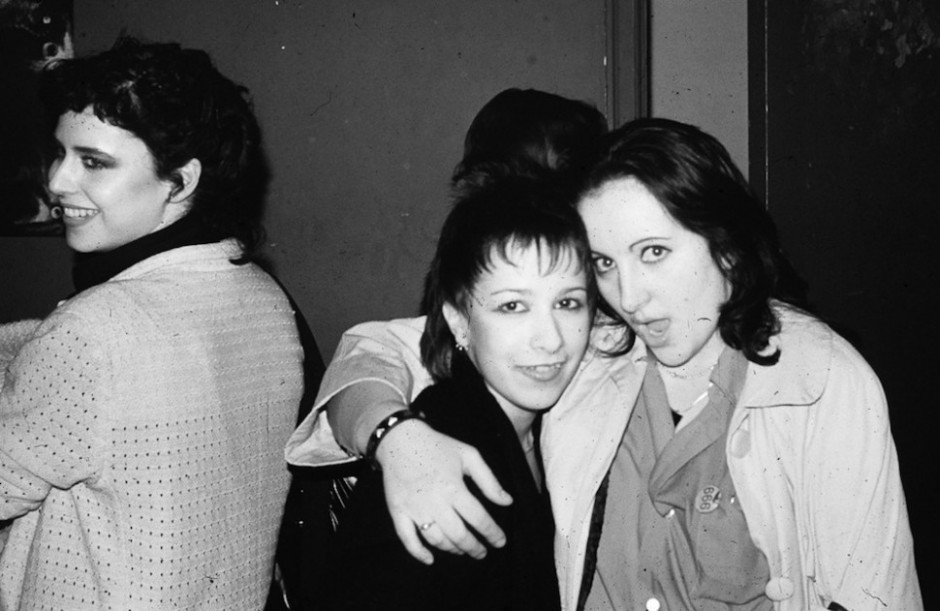
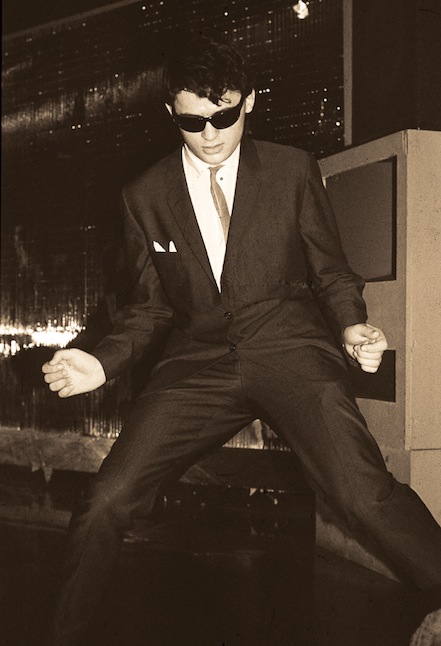
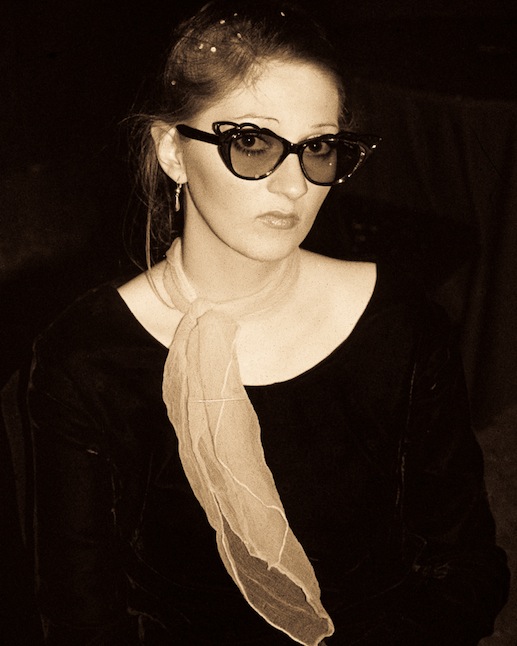
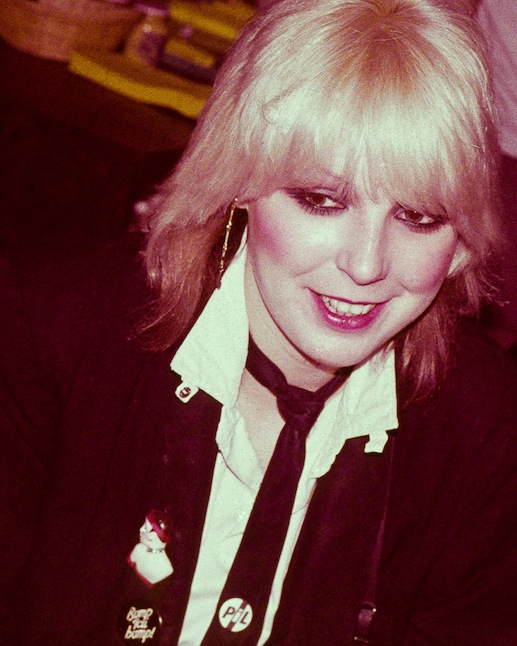
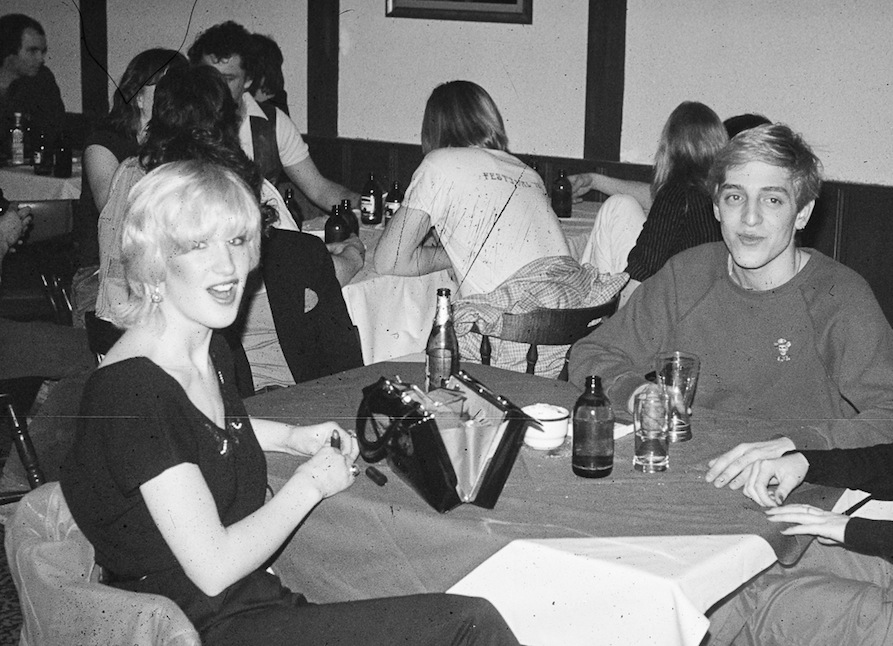
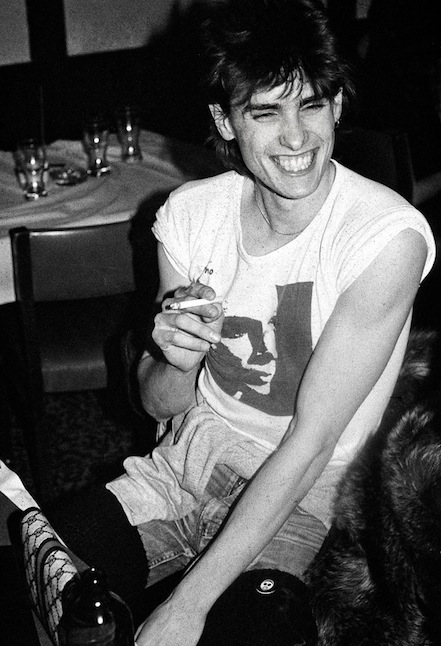
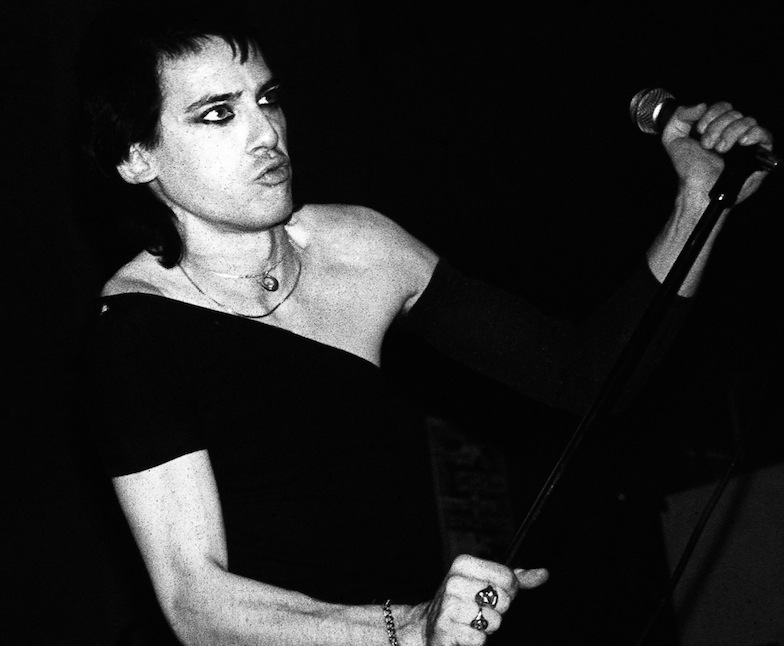
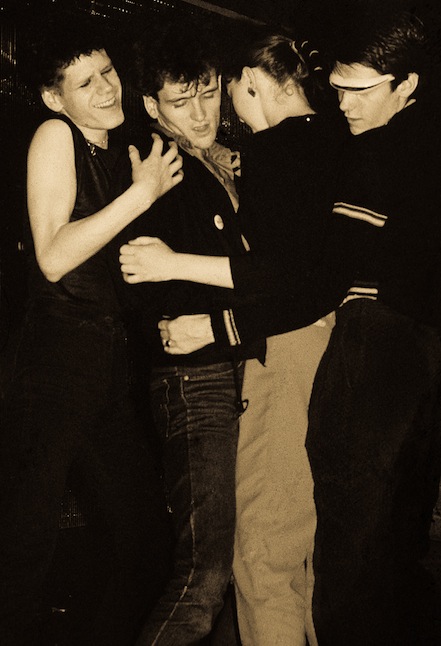
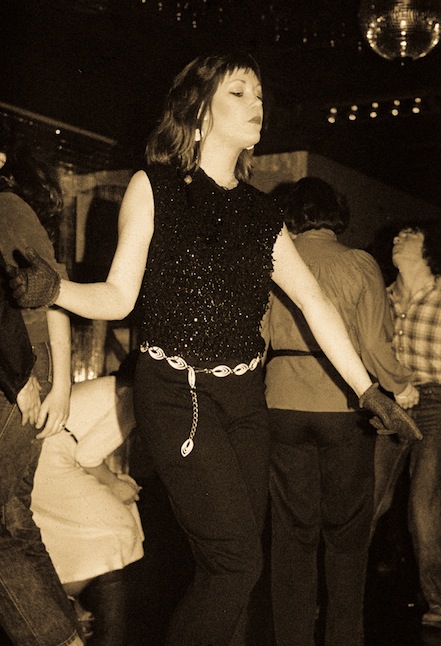
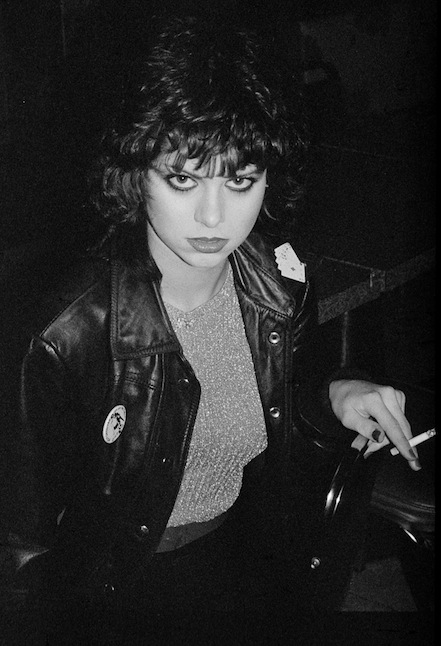
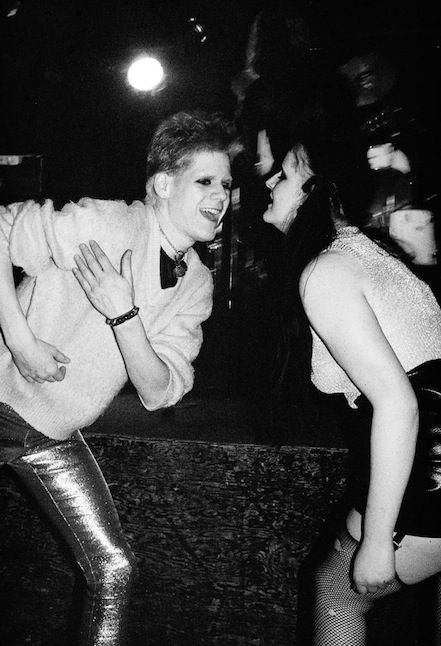
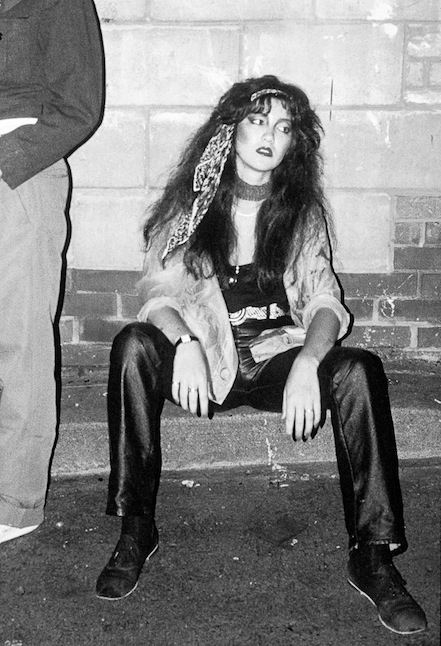
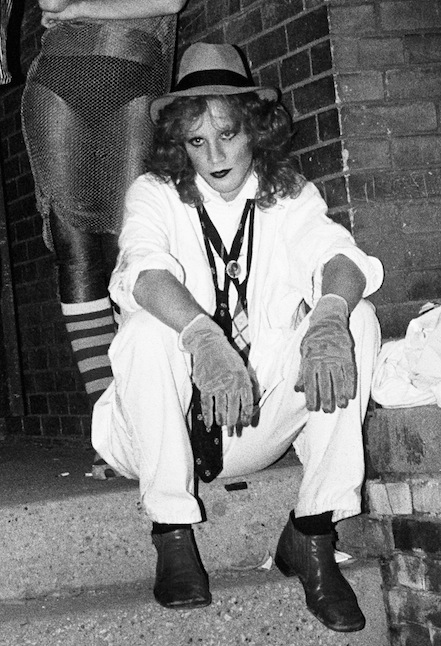
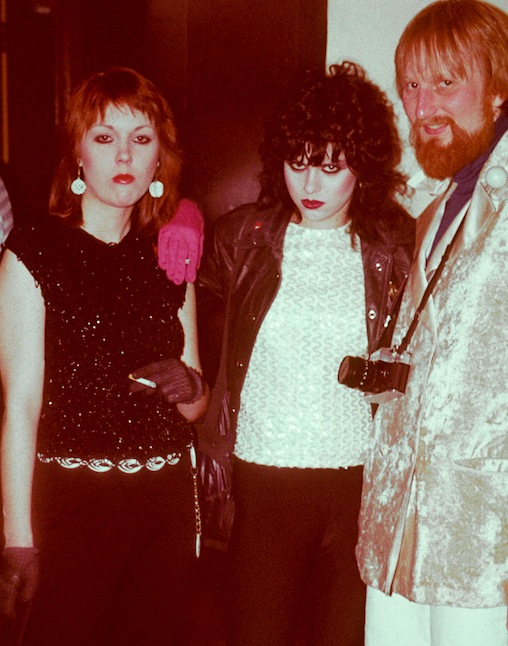
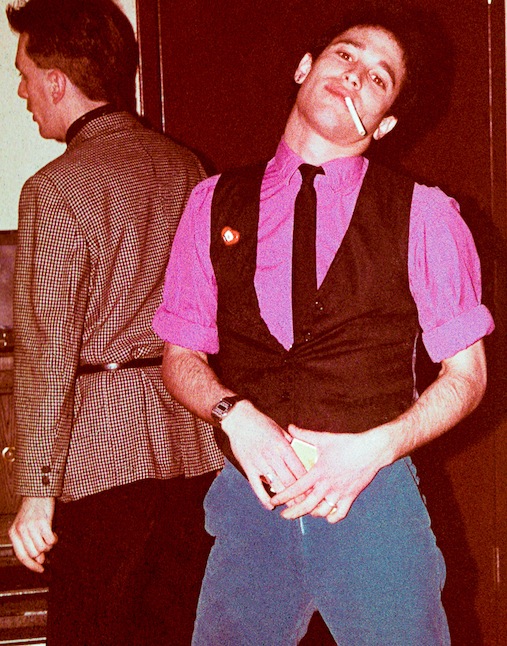
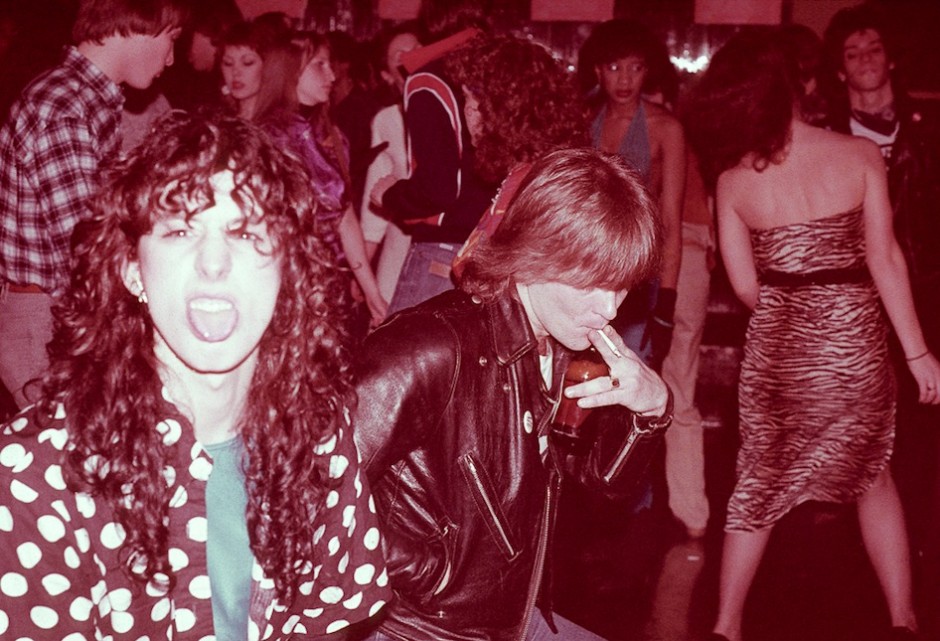
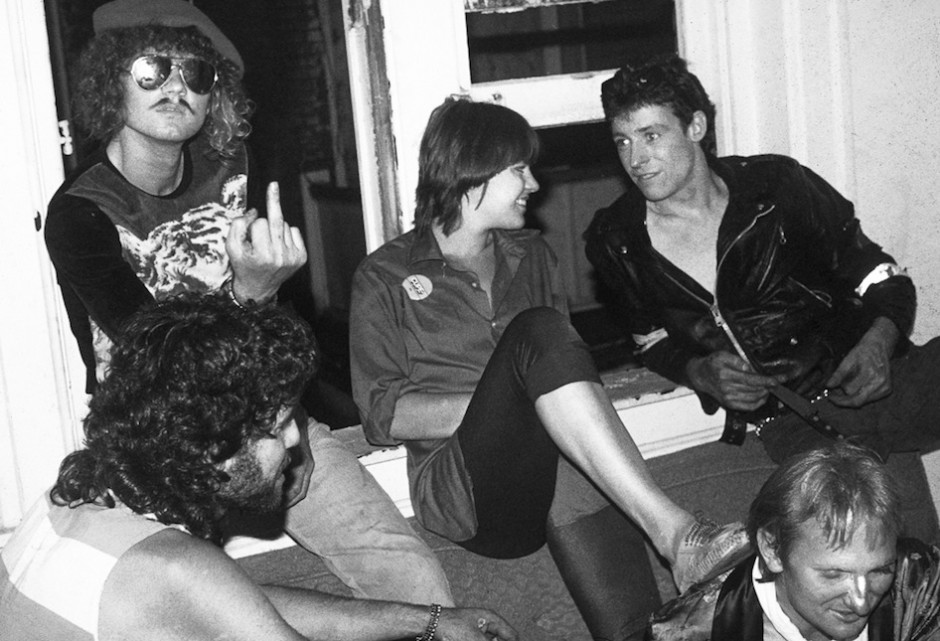
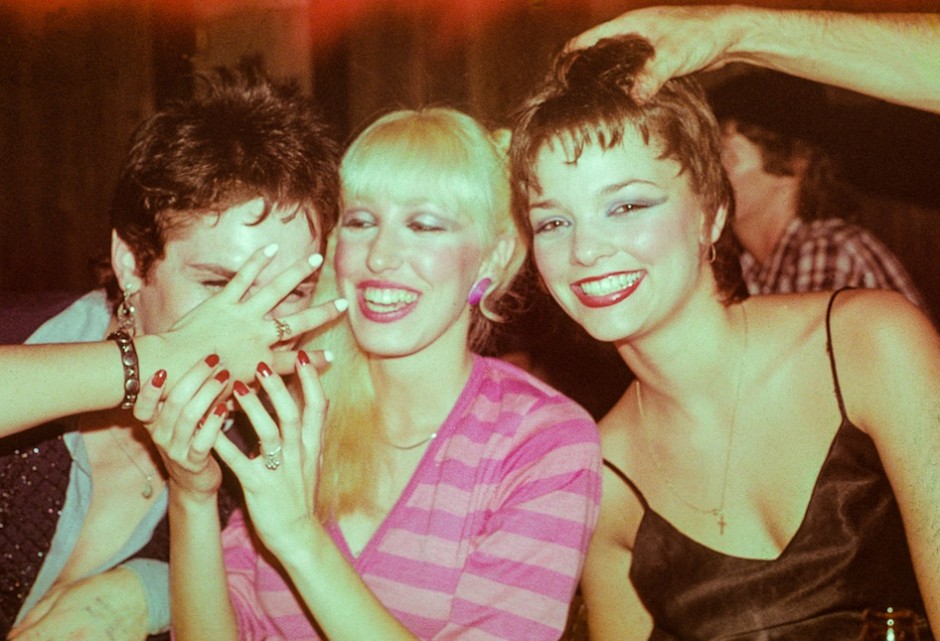
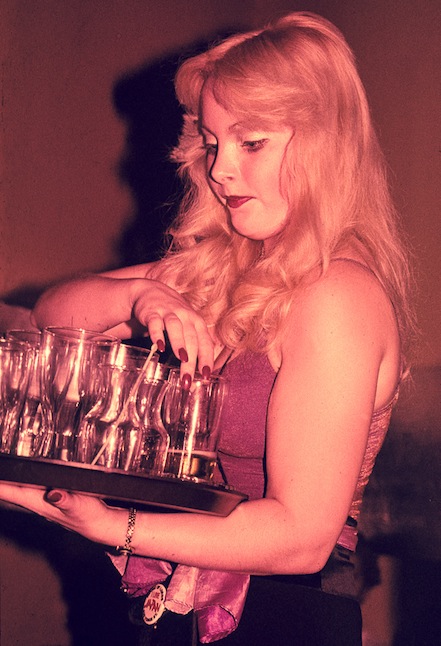
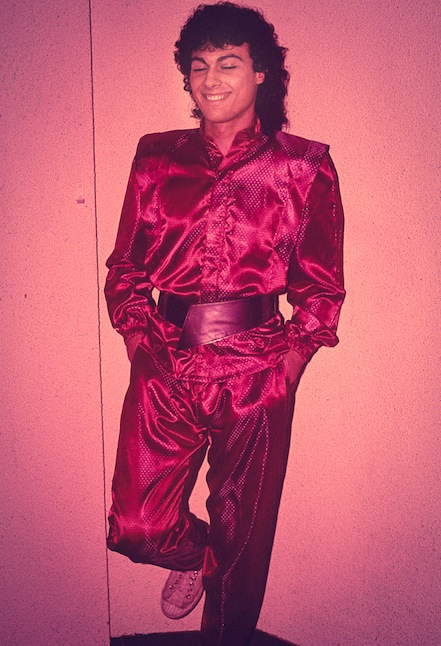
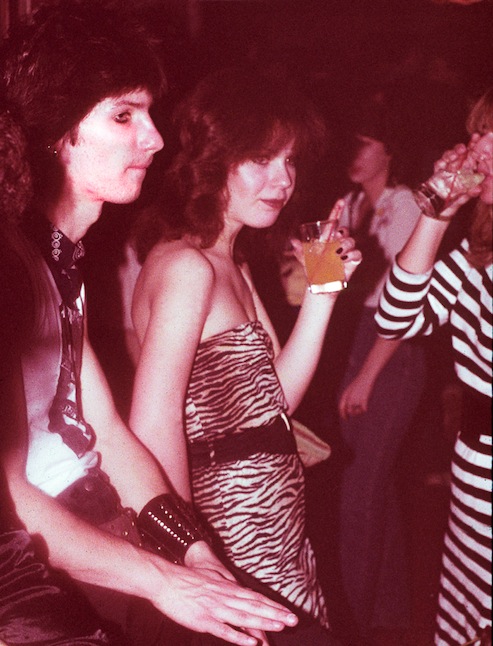
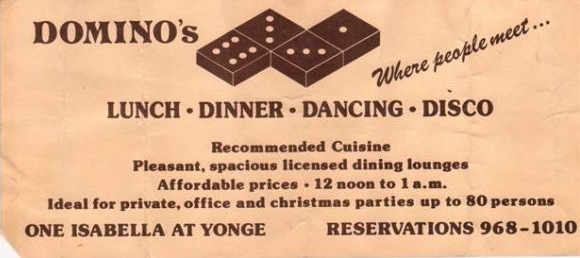
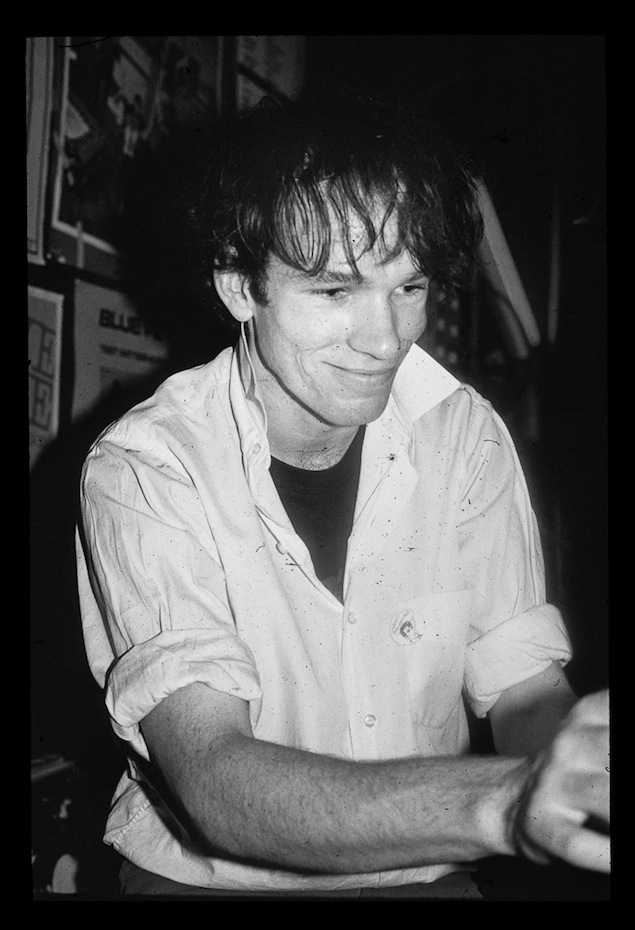
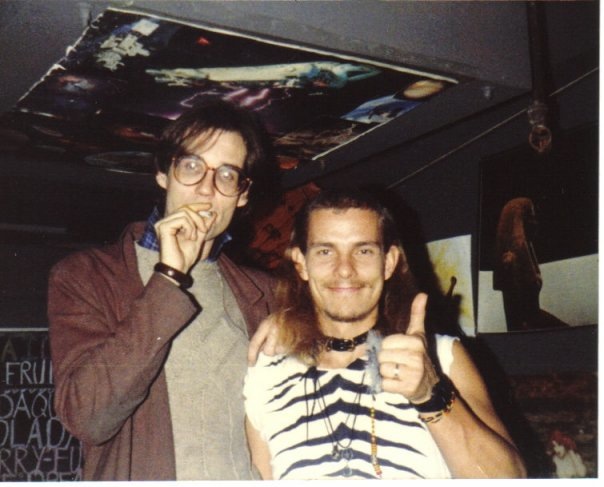
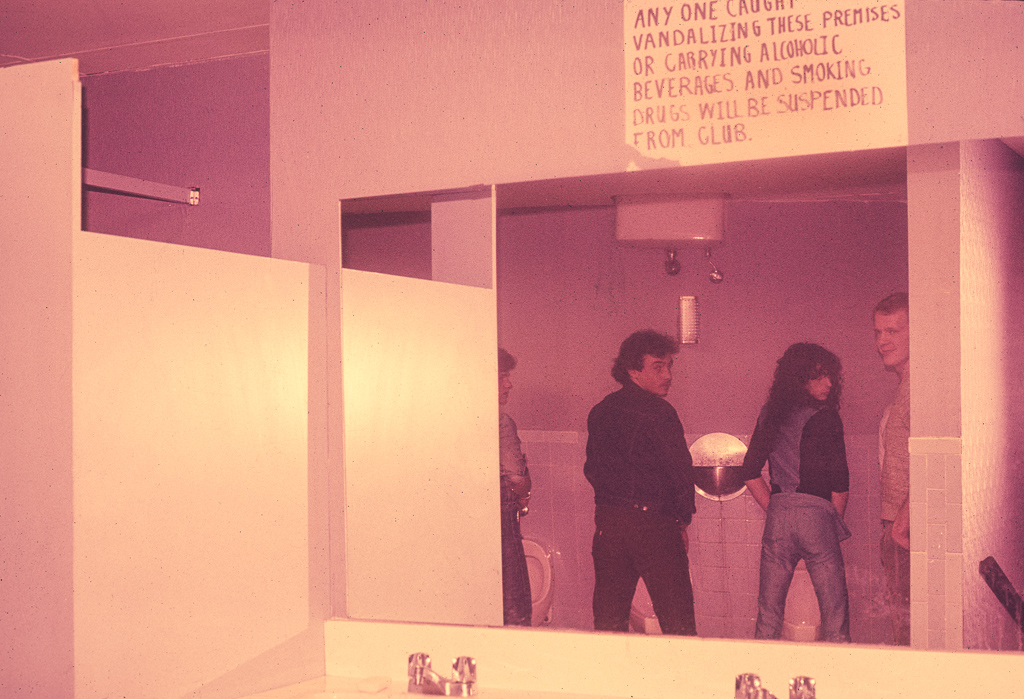
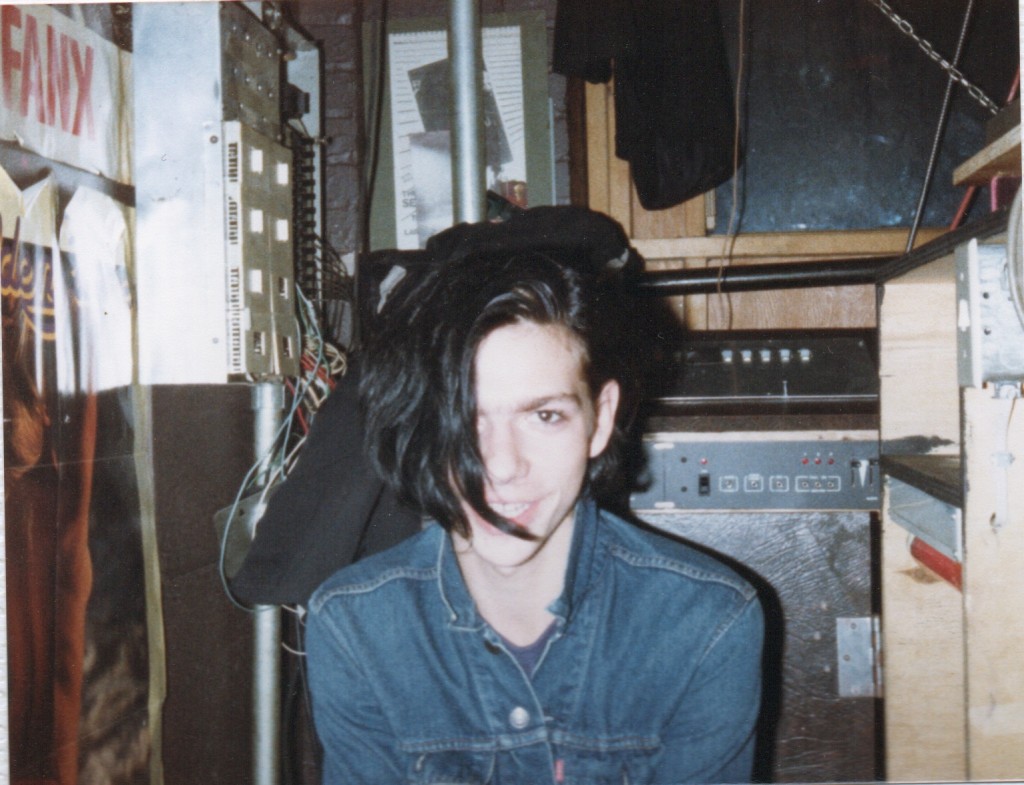
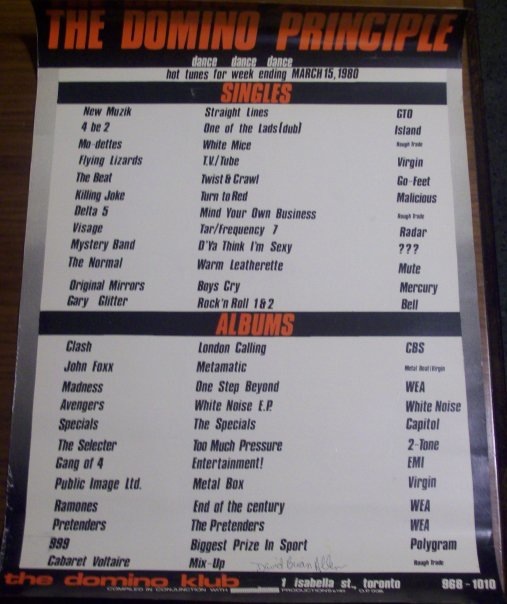
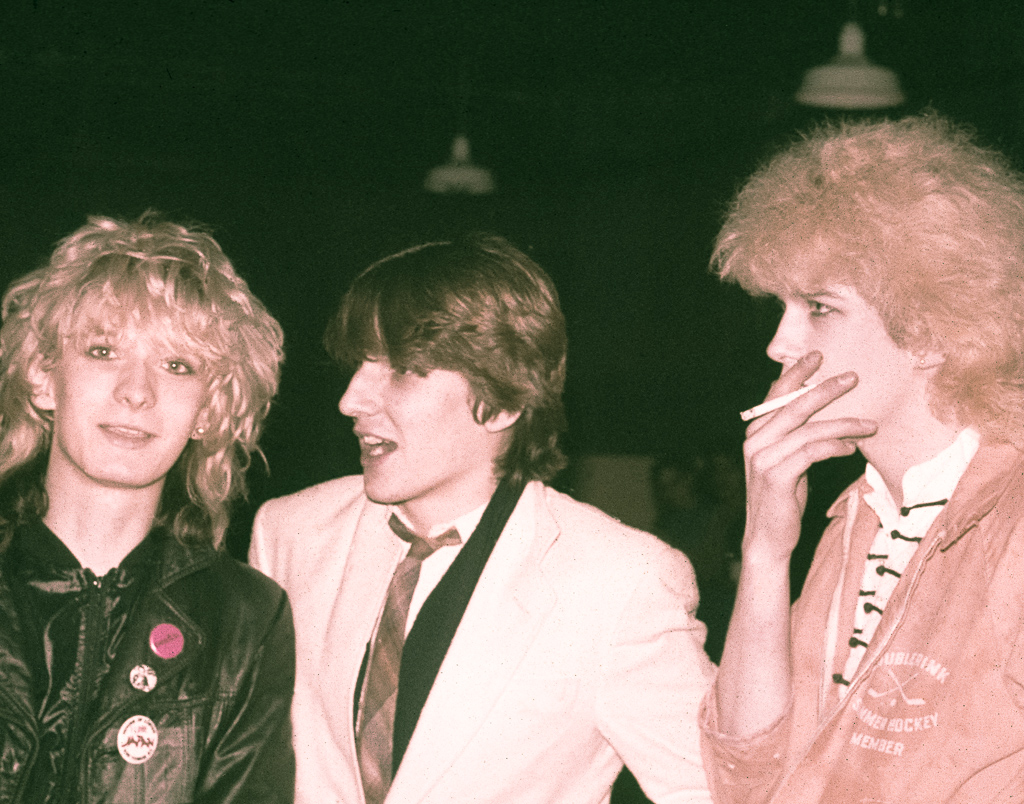
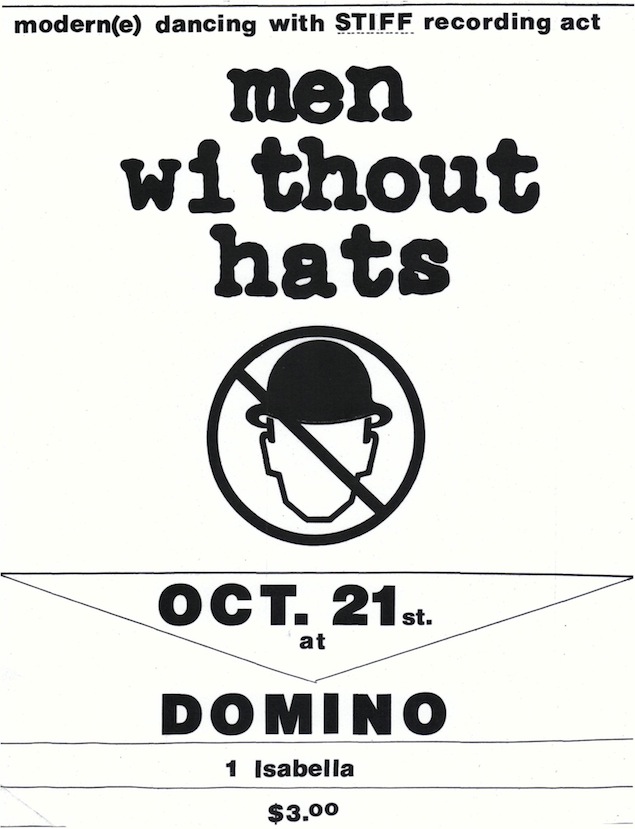
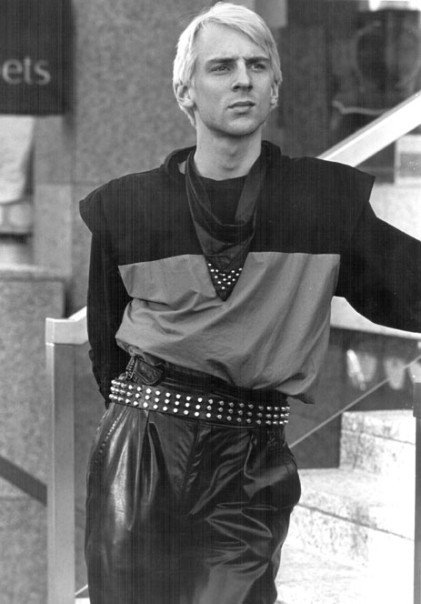
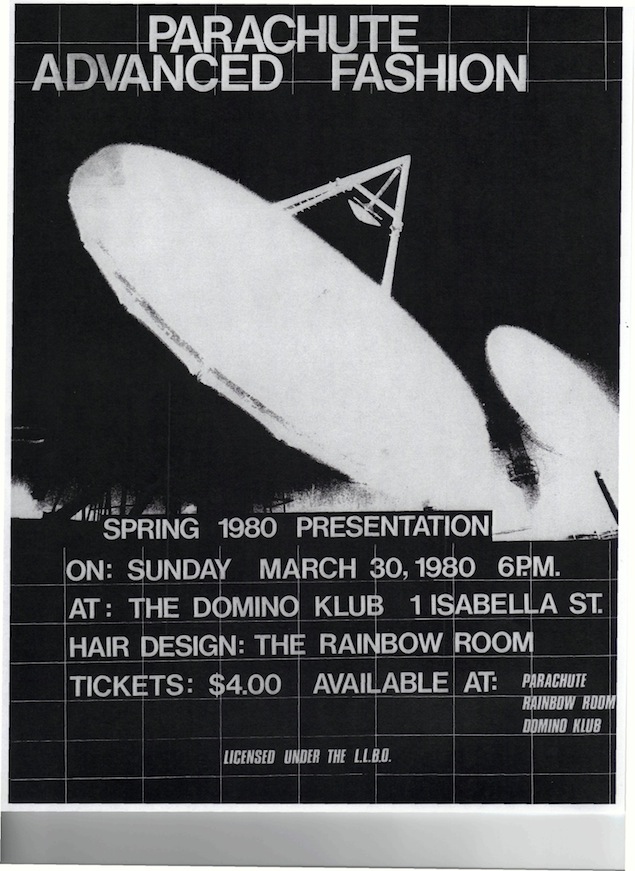
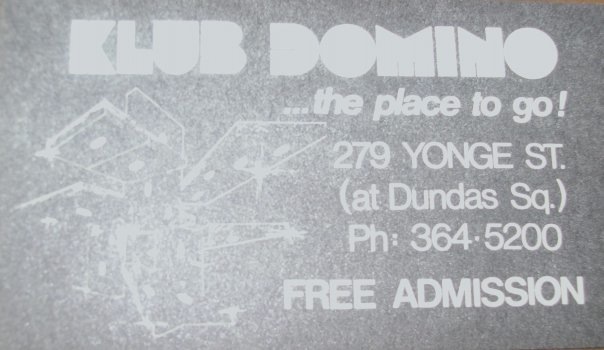
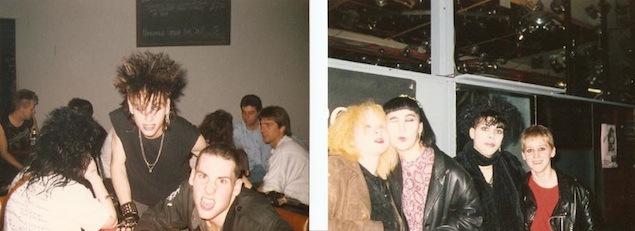
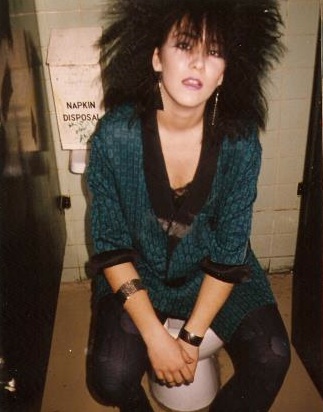

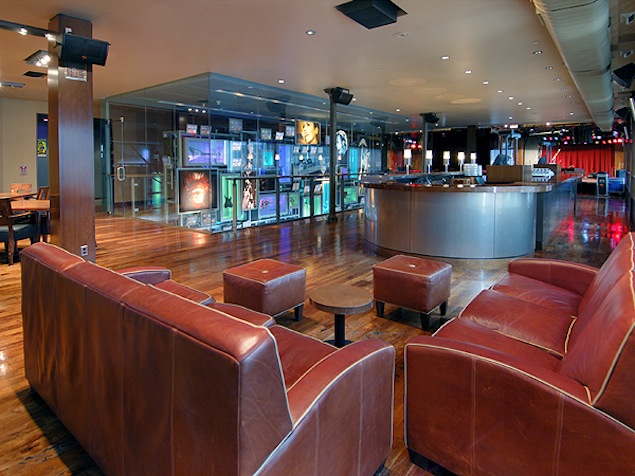
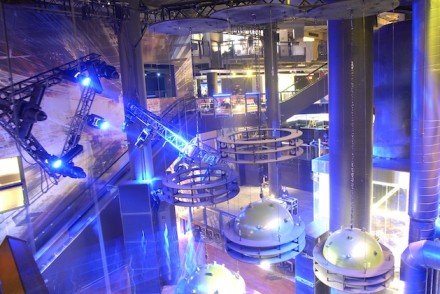
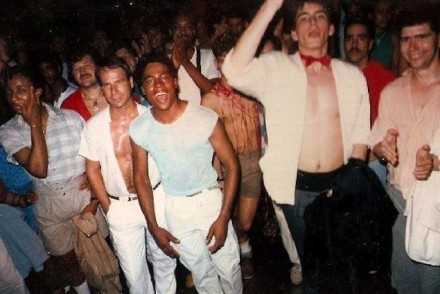
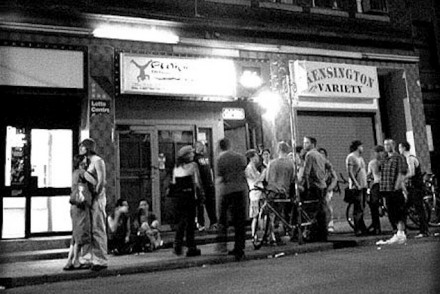

17 Comments
Wow such great memories there. Also Nuts and Bolts was a regular for me and the wife.
Wow! The top single on that wall chart was New Musik – Straight Lines! One of my favourite and hugely underrated bands of all time. Their name doesn’t pop up enough. That would have been 1979-1980.
I only knew the Yonge Street Club days, Black Day for a White Wedding era, completly out of my element, an abused child with no way of articulating any of that turning tweny-five and learned dance it all through and through, almost always alone in my parachute pants, made one friend, one of Richard Pochinko’s clowns who came there to dance her own inner life, and I guess that got me to The Edge and dancing to Dick Duck and Dorks just before Nina Hagen, and I was allowed to just be, and that probably save my life, so thank you.
One of my best friends to this day (40 years later), I would meet in the back room at the original club in 1981. For that alone the place is forever embedded into my personal history. But when I saw this article I couldn’t help thinking. Who was that person that stood at the bar drinking a cold black label? Or Dancing to Idol. Mostly high. Or just Hanging out on pre drinks in the Snug. It’s like looking at a stranger. I’m not that person anymore. But this thing called life weaves through like waves. Like still frames in a Fassbinder film. Without the Domino soundtrack to my youth pounding out every weekend from one of the most unlikely looking of characters that called himself Dave Allen, I may have not still held onto rock n roll music 40 years later . Music and art is still a big part of my life. And I would like to think that Gunther, Allen, Shepard were all part of that. Every now and then I will tune into Sirius Satellite’s channel called “1st wave”. A smile will come over me when I hear Bauhaus’s version of Ziggy Stardust. It reminds me that I was part of something very special in Toronto. (Right up there with the Yorkville scene on the 60’s). A lot of people and places have now gone. Hell…even the House of Lords across the street is gone. But when I hear one of those classic songs, there will always be in the “mind’s eye” a familiar place, a familiar feeling, of a great scene…but yet still a stranger in a strange film called…1 Isabella
What a great post. I recall all of my years spent at Domino with amazing feelings of love and togetherness. It was a family, the bouncers at the door, the music, the dancers, the regulars.. I too laugh and feel like “wow, I was there when..” the 80′s music, dress, Much Music played the video’s of New Order, Souxsie and the Banshees, Simple Minds, Grace Jones..ahh so many good times. I have since moved from Canada, but remember passing the House of Lords, Sam the Record Man, etc on our way too and from the club. Happy New Years..thanks for the blast from the past.
Wonderful to read so many memories that I share with many of these entries. I too was a regular and was at many special events at the klub. I still talk about the Diodes playing New Year’s Eve at the Isabella location. I embrace those days and still stand on my soap box of how great these bands are and look forward to seeing some of these artists when they tour in the near future. Thanks for sharing.
The skinhead looking guy at the bottom left of the “scene at Klub domino” photo set was such a giant middle class asshole. He would go to shows and randomly attack people to “prove” himself. You could tell he was a North Toronto, visit nan every summer, buy bong
Cage pants on carnaby street poser pos and basically the antithesis of everything punk was supposed to stand for. I’m guessing he’s either dead (good riddance) or a cop. Right fuckin loser that one.
An amazing time great music and fashion that changed the music industry
I remember my buddy Chris and I made up the Domino Principle “top of” list posters every week. It allowed us to get in the club before the bouncers got there to ask for ID and then we got to know them so they just didn’t bother asking us for id. We were like…15/16.
I remember those!
Wow..stumbled across this gem of an article..brought back such huge memories..lived at Domino’s for years..used to travel in for Japan nights from Hamilton, when I was in college. Moved to Toronto and worked at A & A record store on Yonge Street selling event tickets. Camped out at the Domino Klub, cocktails at the Quest with our favorite server, Norris. Ventured out to many other clubs along Isabella but nothing, hands down Nothing compared to Domino’s. Avery was the dj and I named my first son after him. So many memories of the mirrored walls and stainless steel dance floor. The most creative and cutting edge people hit that club..such great music, Roxy music, Duran Duran, Japan, Siouxie and the Banshees, the Cure, Clash, New Order..I could go on and on..great times.. Best clothes, best hair, best vibe..dark yet so much energy..Heaven!
Ha – nice column. I started going the Domino around 1978/79 with a bunch of lads who’d all emigrated from Britain. Too many to name here. We’d have pints in the nearby Duke of Gloucester and then head over to the Domino for our fix of Ska, Reggae, New Order, PIL, Clash and the Jam. At the time, the only spot in Toronto playing the music we liked. Q107 was still playing Judas Priest and Led Zep. We were all listening to the Jam and Stiff Little Fingers. The Domino played our stuff for the most part. Recall seeing Simple Minds at the Edge The first Duran Duran show at the El Mocambo. Toronto was visited by all the popular British bands of the 80′s (UB40, Jam, Simple Minds, Duran Duran, Cure, Bunnymen, Frankie, Stranglers, OMD, The Beat, Specials, Midnight Oil -ok an OZ band) that few in Canada seemed to care about. It was easy to get tickets to see them before they all became famous and started playing at the Gardens. Many of the Domino regulars would remember great shows at the Concert Hall (Masonic Temple) north of Bloor. Too bad I don’t have picture of the day.
I believe I remember you lot – you’d often be in the “snug” at the Duke, yes? Was one of your lot a guy called Paul with a blue note dyed in his hair? Lived near the underpass in a row house around Dundas St.?
Seeing this about 10 years later. Yes Pail was from uk too, and recall he did have a music note dyed on his head. We all rented a bus and piled up to Montreal to watch the Toronto Blizzard. No Domino scene in Montreal that we could avail . Lol. Big Dave used to rent at that place on Dundas West. Spent a few late mornings after the clubs closed out there.
All comments in the string below have been republished from their original appearance on The Grid website. We’re including the readers’ comments as they add to these Then & Now stories. We look forward to reading new comments here as well.
James MacFarlane
Wow, I loved my Japanese-looking Parachute satchel. I never knew Carson worked there. He has a big haircut inspiration for me at the time. For bleaching, it was “Sun-in” on my bangs for me, which ended up this dead-grass orange colour. Awful. It was all I could afford. I drooled over everything in that store. The bag was all I could afford.
Domino’s was my first time buying alcohol. I was still under age. It was also my first time experiencing alcohol poisoning. I got to both experience, and contribute to Vomit Comet along Bloor…all the way.
Thumb up 0 Thumb down 0
6:41 pm on March 7, 2013
Danny Regan
Thanks Denise and all those who provided input for the article-
It was nice to orbit back to that garden on Isabella street where so many wonderful friendships grew and so many musical seeds were planted.
Words can never adequately express the huge debt the Toronto music scene owes to the Oracle of Domino’s – Dave Allen -and his unparallelled ability to foresee the future of music and weave an intricate tapestry of different musical styles and genres together -light years before they would become mainstream.
( A case in point.)…. I remember Dave was the first DJ in Toronto to import a copy of Bauhaus’ Bela Lugosi’s Dead…..albeit a very warped copy. By taping pennies to the tone arm he determined the appropriate weight needed to make the record playable………therefore opening the dungeon door to the dance floor……….the belfry would never be the same.
It was a privilege to work beside him in the DJ booth in the coming years and watch a sea of orphaned shipmates undulate and sway as they set sail on his ocean of sound….Dave at the helm and all of us quite merrily along for the ride.
A debt of gratitude to Mike Gallow. Without his entrepreneurial foresight we would never have had a platform to perform on.
Domino’s was inhabited by a wonderful melange of creative and inspirational spirits. Everyone had an independent vehicle of expression with free licence to adorn themselves with whatever made them happy without worry of recrimination.
We were indeed a family………a band of wayward souls………on a journey of discovery…….cut adrift in the big city………..listening for the sirens sound………compass in hand……….with the needle pointing to another new song on the turntable about to spin us across the dance floor and into the future.
I cultivated all my endearing friendships here. Beautiful people…..beautiful times. To each and everyone of you, my eternal thanks for all the lingerprints, long may you sail, Danny
Thumb up 6 Thumb down 0
4:19 pm on March 7, 2013
Barry Harris
I absolutely remember walking into Dominos and hearing for my first time ever ‘Warm Leatherette’ by The Normal, thinking holy shit, wow! What the hell is this! Loved it and still do to this day. Think Chris was DJ at the time. I wouldn’t start DJ ing myself for another 3 years. Thanks for this article! Fun stuff even though I only remember going periodically to hear what the new sound and new scene was all about at the time.
Thumb up 2 Thumb down 0
8:59 pm on March 6, 2013
Coyote Shivers
Domino’s was where I learned to DJ… as a 15 year old. Basically when Avery was bored or it was still early and wanted a break. After years of film and recording, I still sometimes DJ around Hollywood for fun and it takes me right back to being underage at Domino’s spinning records that only us (at that time) wanted to hear.
Thanks for this. – CS
Thumb up 4 Thumb down 0
9:32 am on March 6, 2013
DDTO
Denise, you’re a fantastic DJ and modern-music historian, but your journalism may be in need of fact-checking in this instance.
Chris “Puppy Dog” Sheppard a “doctor working in neuroscience”? Although it’s been “reported” that he has “three PhD’s” does anyone really expect us to believe that?
He may be dedicated, capable and/or brilliant, but I’m not sure he’s had the time or inclination for this vocation.
Thumb up 2 Thumb down 3
12:23 am on March 6, 2013
Adam
Yeah, I’m not buying he’s a doctor.
Thumb up 1 Thumb down 0
9:40 am on March 6, 2013
Zia
As a veteran of the Yonge St. Domino’s version, it satisfies to see this history set down. And I’m still coming out to sweat when Ivan plays!
Thumb up 3 Thumb down 0
12:01 am on March 6, 2013
EA Montgomery
Given he was voted Top DJ repeatedly by NOW magazine, how was Domino’s (and the Copa, Lizard Club, Boom Boom Room, Limelight etc) DJ Ian MacPherson not mentioned?
Other than that, a great article bringing back MANY fond memories.
Thumb up 0 Thumb down 3
Report11:47 pm on March 5, 2013
Reply
Denise Benson
Hey EA,
I’m a bit confused here as the article was about Domino’s so it was of course mentioned
As for Iain, he’s been interviewed or mentioned in a number of past Then & Now articles, including full pieces about The Copa, Limelight, Nuts & Bolts, Oz, Boom Boom Room and more. I asked him, and he never DJed at either location of Domino.
So far, 35 clubs have been written about, with lots more to come. You can read all of the past Then & Now: Toronto Nightlife History pieces here: http://www.thegridto.com/tag/then-now/
Enjoy!
-db-
Thumb up 3 Thumb down 0
3:38 pm on March 6, 2013
Avery Tanner
Thanx Denise. Well done! A nice walk through times past.
Thumb up 2 Thumb down 0
10:53 pm on March 5, 2013
Donna
Great times at Dominos with Chris Sheppard! He played the best house music and was ahead of his time. Loved the nights!
Thumb up 0 Thumb down 0
10:19 pm on March 3, 2014
anon
wow, what memories, thanx for a great article
Thumb up 0 Thumb down 0
10:45 pm on March 5, 2013
beline
wow… i love the marianne faithful tale.. 5C played there opening up for DNA (Arto Lindsay, Ikue Mori and Tim Wright) so new wave…. great writing denise!!!
Thumb up 0 Thumb down 0
10:43 pm on March 5, 2013
Reply
Carson T. Foster
Denise.
This series helps give a context and timeline to
when I started to become culturally aware and
what I became aware of.
They were exciting times and you share them well.
Thank you.
C
Thumb up 5 Thumb down 1
9:57 pm on March 5, 2013
michael sweenie
Bravo Again Denise!! I was a fixture at the original Domino Klub on Isabella but only went once to the second location as it was not the same for me anyways .
I will never forget the opening night party with David Sylvian in the house!
Thumb up 4 Thumb down 0
8:35 pm on March 5, 2013
David Fruitman
Wow – an amazing slap up the head of memories. I first got to original domino in early/mid 80′s and it was a huge part of my life – the memories, the friends and the music all still are even though the space has long since faded.
BTW – the track in the article is one that I recently sent to Ivan – I saved the cassettes he made me all those many years ago.
Thanks Denise – this series has been amazing…
Thumb up 4 Thumb down 0
8:30 pm on March 5, 2013
Ivan Palmer
Thank you Denise,
Great work, I was captivated by the story from the beginning to the end.
It is a great journey back in time.
I didn’t have the fortune to experience the first Domino as it was, but I can imagine the great times that was happening, it filled in some of the stories that took place before my time in TO.
Thank you for being you <3
Thumb up 5 Thumb down 0
6:55 pm on March 5, 2013
Philip Brown
As always, you’ve captured the looks, sounds, smells and feel of a piece of Toronto history Denise. You’re a talent!
Thumb up 13 Thumb down 0
5:29 pm on March 5, 2013
I had just moved to Toronto from Ottawa. My first accommodation was on Montrose Street in the basement. There was a band living on the mainfloor which was trying to play Gang Of 4 stuff which I had never heard of. Little did I know how it would shape me. I soon discovered the Isabella Domino club and loved it from the music to the crowd. Ended going there quite a bit and it changed my music tastes forever. Still listen to Post Punk and have only great memories of the club. Thank you Domino Club.
Indeed when I discovered the Domino Klub with my friends we all thought we had crossed the rainbow into another dimension. We went weekly to Domino and in fact, named my oldest son after the DJ, Avery. We still talk about our club adventures to this day. I too am a dj, playing progressive house. Ahhh, who knew ❤️